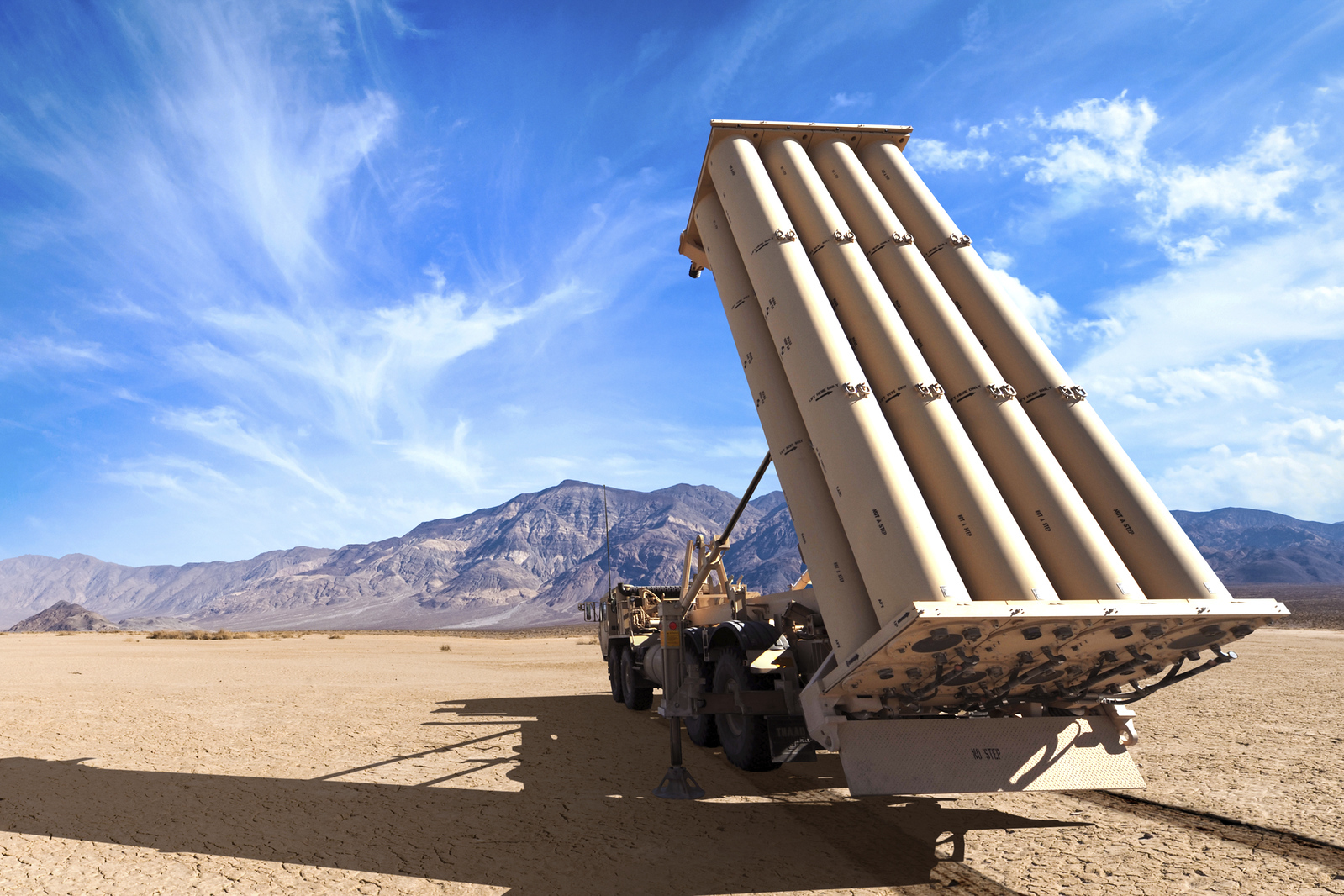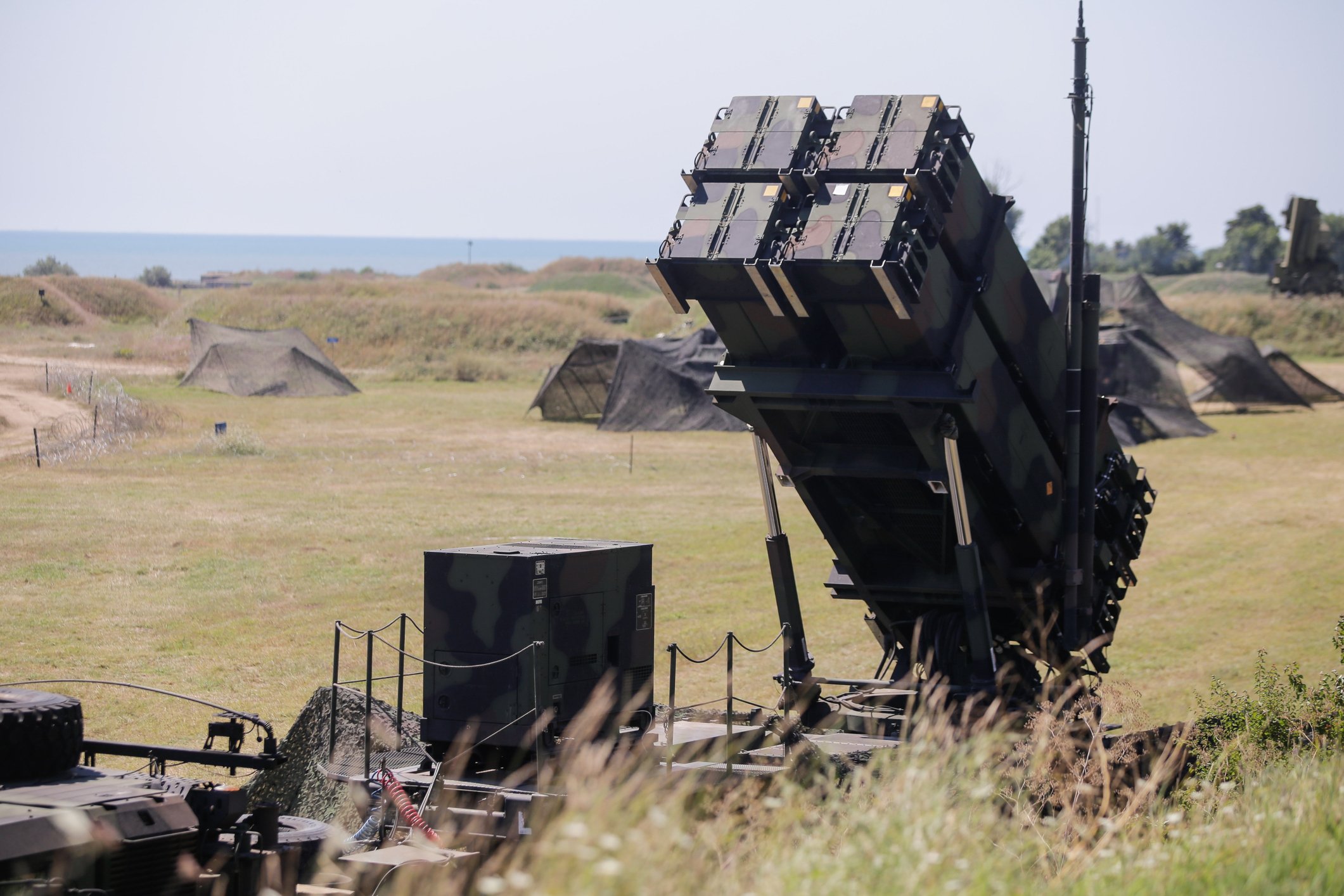Iraq's new and improved air force now boasts a full complement of 36 Lockheed Martin (LMT +0.28%) F-16 Falcon fighter jets. Soon, it will be supplemented with a further 24 FA-50 light attack training jets -- also from Lockheed Martin (and its partner, Korea Aerospace Industries).
But now they need something to shoot with.
Iraqi Air Force Captain Hama alongside his new IAF F-16D Fighting Falcon. Image source: Senior Airman Jordan Castelan for the U.S. Air Force.
Not to worry: American defense contractors have got Iraq covered on that score as well.
Bombs for bombers
Last week, the U.S. Defense Security Cooperation Agency notified Congress of plans to sell the Iraqi military a massive arms package of guns, bombs, missiles, and ancillary equipment for their F-16 fighter jets. Valued at $1.95 billion in total, the weapons include:
- 150 AGM-65D/G/H/K Raytheon-built (RTN +0.00%) Maverick air-to-ground missiles
- 2,400 of General Dynamics' (GD 1.34%) 2,000-pound MK-84 and BLU-117 2,000-pound general purpose "dumb" bombs, convertible to "smart bomb" configuration with 400 Paveway II and Paveway III tail kits from Lockheed Martin and Raytheon
- 14,120 of General Dynamics' 500-pound MK-82 and BLU-111 dumb bombs, plus 8,000 Paveway II tail kits for smart bomb conversion
- ...and 8,500 FMU-152 fuzes from Kaman Corp (KAMN +0.00%) to make all those bombs go boom.
Curiously for an air force primarily fighting an opponent (ISIS) that possesses no airplanes, the arms package also includes 24 AIM-9M Sidewinder air-to-air missiles. DSCA explains this by noting that the arms sale aims to "improve the security of a strategic partner" and help Iraq to defend itself from both "current and future threats."

Lockheed Martin's F-16: Backbone of the new Iraqi Air Force. Image source: Lockheed Martin.
Who benefits?
In describing the beneficiaries of this contract, DSCA names both Lockheed and Raytheon as principal vendors. (Indeed, the notification names three separate Lockheed operating units as principal vendors.)To an extent, that's logical. After all, as the manufacturer of the F-16, and the maker of the Paveway kits, Lockheed Martin is obviously going to play a big role here. The same holds for Raytheon and its role as manufacturer of the Mavericks, the Paveways, and the Sidewinders, as well.
DSCA does not, however, mention either General Dynamics or Kaman Corp in its notification to Congress -- although judging from the sheer number of the bombs and fuzes being sold, pound for pound, General Dynamics and Kaman Corp are clearly delivering the bulk of the munitions that Iraq is buying.
What it means to investors
Don't be fooled, though. If Lockheed Martin is taking the leading role in this contract as prime contractor, General Dynamics and Kaman are both likely to play important parts -- and receive substantial revenue from their roles as subcontractors. In a contract this big, there's going to be plenty of money to go around for everybody.

General Dynamics' MK 84 general-purpose bomb. Big bangs make big bucks for this contractor. Image source: U.S. Air Force.








